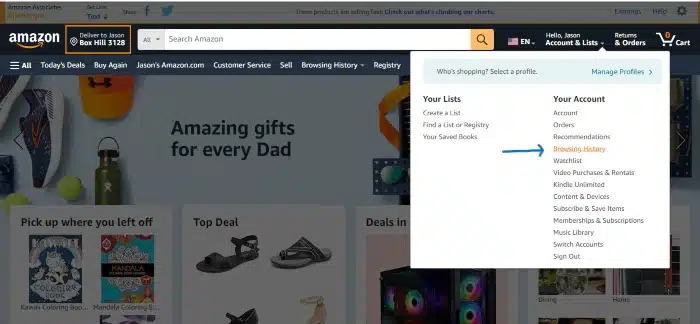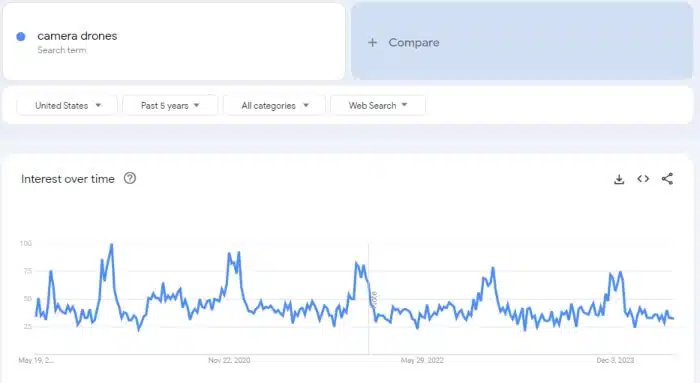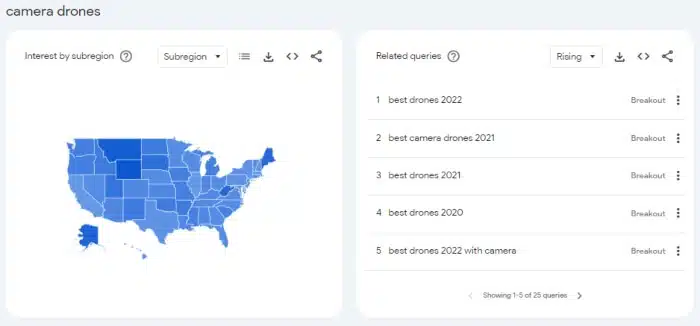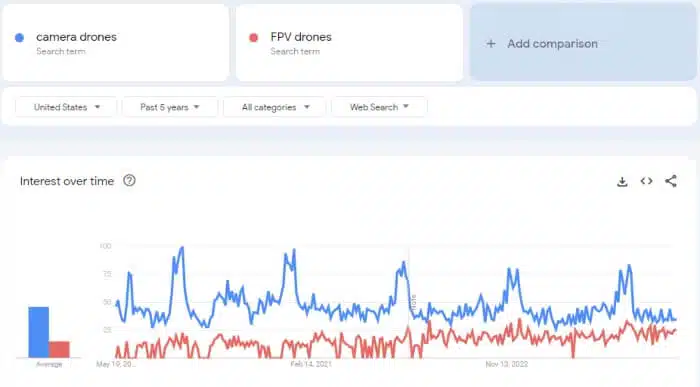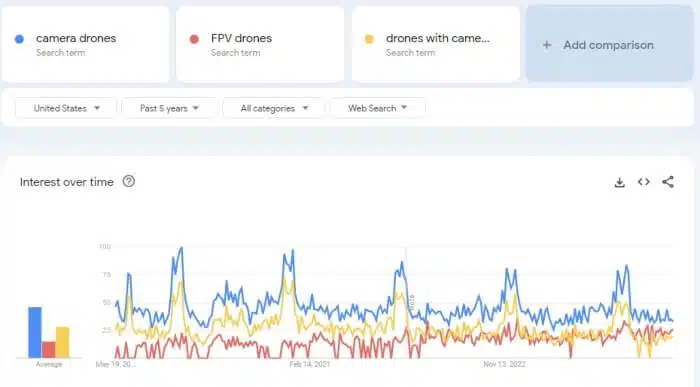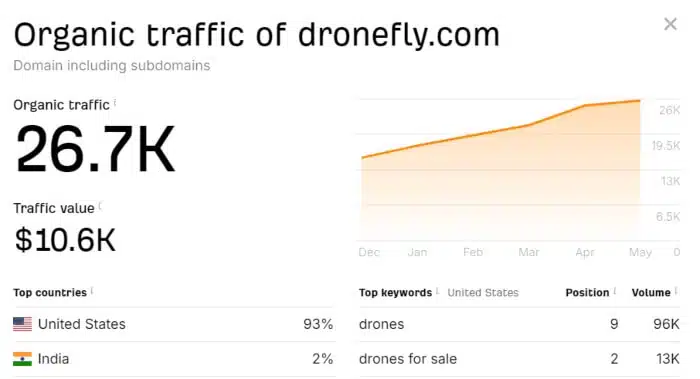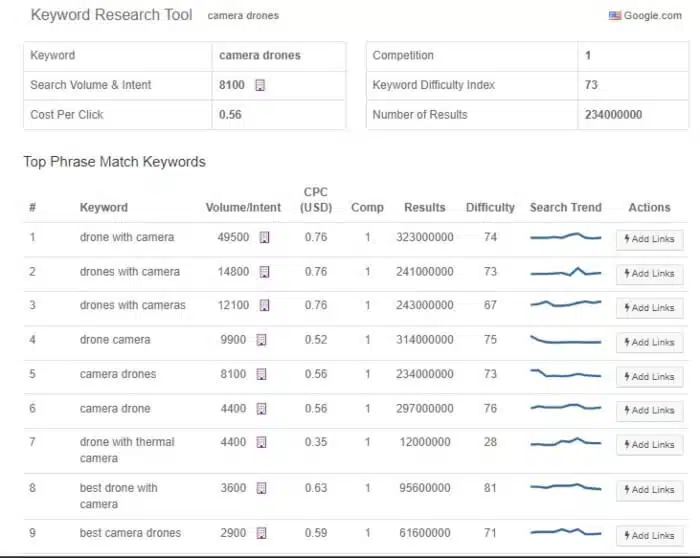How to Choose a Profitable Blog Niche as a Beginner
When starting a blog, picking the right blog niche is super important.
If you choose a niche with little commercial value, like chess, you might struggle to make money.
Not many people are buying products in such niches.
On the flip side, if you choose a highly competitive niche that needs professional knowledge, like the medical field, but you’re not an expert, your articles won’t rank well on search engines.
Google’s Medic update in August 2018 made this even tougher.
If you want to start a blog, let me explain how to choose a profitable blog niche in 2024 … and in two step.
Ready to Learn How to Start a Thriving WordPress Blog? Click Here Now
Key Takeaways
- Picking a blog niche with both interest and money-making potential is crucial for new bloggers. Tools like Google Trends help validate profitable topics.
- Micro niches like Smart Kitchen Gadgets allow for quick expertise building and have less competition. Making it easier to earn through targeted ads and affiliate marketing.
- Matching personal passion with market demand leads to engaging content that can generate revenue from affiliate marketing, ads, sponsored content, or product sales.
- Use brainstorming and profitability validation steps to choose the right niche.
- Standing out in competitive niches requires unique perspectives. Personal expertise allows bloggers to carve distinct niches, attracting dedicated readerships interested in specific topics.
You Need Money to Fuel Your Passion
Save/Pin the image below👇because I often update my posts. So stay informed with this blog “How to Choose a Niche for Your Blog” and save it.
Before I explain how to pick a blog niche in two steps, you need to understand this.
You need to find a middle ground between what you enjoy and what brings in money.
It has to be profitable for long term blogging success.
You see, blogging isn’t just about passion.
Yes, it’s true that passion keeps you going when things get tough.
But what happens when your blog isn’t. Making. Money.
Even after all your effort, you keep going because you see it as a hobby.
That’s great.
But what if you fast forward say, 100 blog posts later, and your blog still isn’t making money?
Would your passion wear out?
For most people, it probably would.
So, starting a blog isn’t just about passion.
It isn’t just about sharing ideas.
It’s also about making money.
In my opinion, you have to treat your blog more like a business than just a hobby.
While having an interest in your niche is important, you should also consider its profitability when making decisions.
And it has to demand.
It’s money that fuels passion and keeps it alive for the long haul.
What is a Blog Niche?
A blog niche is like a special area on the internet where I focus my blog.
It’s about picking one topic that really interests me and those who read my blog.
Over the years, I learned it could be anything – hobbies, dogs, video games, or even gluten-free cooking.
The key is choosing something narrow enough to stand out but broad enough that lots of people want to read about it.
Through my own journey, I found tools like Google Trends and keyword research invaluable for understanding what people are searching for online.
This helped me match my interests in blogging and email marketing with what folks are looking for.
Whether it was finding how many were interested in “starting a blog” or the best ways to use “affiliate links,” these tools showed me where I could dive deep and share my expertise.
Exploring Blog Niches: Broad vs Micro
Choosing between broad and micro niches?
Think about it. Broad topics like health attract many readers but face tough competition.
On the flip side, niches like Smart Kitchen Gadgets might seem small, yet they offer clear paths to making money.
Micro niches let you become an expert fast, drawing in folks who want what you know.
Plus, they make finding affiliate marketing opportunities easier since you’re talking directly to specific interests.
An example I like to share was one of my early blog projects about home decor.
Whilst it was fun blogging about it, I had nothing to show for.
Here’s where it went pear shaped.
I was blogging for everyone who was in this space.
But, I was up against stiff competition, and thousands of them too.
So it was hard to get noticed.
I quickly learned it needed to align with a target audience people ready to spend.
This meant focusing on more specific areas like rustic living room decor or even kitchen home decorating on a budget that attract ads and affiliate marketers looking for engaged audiences.
I made sure my content was ripe for targeted ads or email marketing, which turned casual readers into potential buyers.
Passion fuels your blog; commercial potential makes it thrive.
This journey taught me the importance of blending personal interest with topics that have economic value.
It wasn’t just about loving home decor but finding where my interest met market demand.
Like exploring niche markets within home decor that are underserved but lucrative.
However …
YMYL topics — which stands for “Your Money Your Life” — should be approached with caution by bloggers.
These include finance and health care advice that could heavily impact someone’s life or finances if inaccurate.
Due to strict guidelines by search engines, new bloggers might find it challenging in these areas without solid expertise or credentials.
Therefore, I recommend bloggers to stay away from YMYL topics.
Choosing blog niches that make money is a must
As mentioned at the top, you need to be in blog niches that earn money.
Picking the right niche means you can earn from affiliate marketing (my favorite), display advertising, sponsored posts and selling your own products or services.
If you’re wondering what is affiliate marketing …
Affiliate marketing is a sweet deal where you can make cash by recommending products to people.
Basically, you get a cut (commission) whenever someone buys something you’ve promoted.
One popular way to do this is through affiliate platforms like ShareASale, Amazon or Clickbank.
They connect you with companies looking for affiliates to spread the word about their products.
Now, with that said.
You need to get more specific with your niche.
Think of subniches like smart kitchen gadgets or gluten-free recipes.
These are specific areas where people spend money.
You can find niche-specific affiliate programs in topics you’re really into.
To sniff out these opportunities, start by looking up the niche keyword, popular products or stores related to your niche interests.
Then do a Google search for something like “Keyword + affiliate program”.
If you strike gold, you’ll find legit products that you can genuinely get behind and promote.
Do it right, and you could be raking in some serious cash just for sharing stuff you already love with people who love it too!
The key is finding quality products that fit your vibe.
To succeed, choose topics with high commercial value but avoid chess-like hobbies with low earning potential.
Also, look at online courses (Udemy, Skillshare) and display ads in your area of interest for more clues on profitability.
This way, you make sure there’s an audience ready to click on those affiliate links you plan to share.
A focused niche lets you connect deeply with your target audience.
How to Choose a Profitable Niche for Your Blog
Here are 2 steps to finding your blog niche.
1. Brainstorm blog niche ideas
- First, you jot down 10 to 15 ideas that catch my interest. Topics range from your hobbies to trends you notice in online forums and social media platforms.
- YouTube is another great resource for blog niche ideas. If there are videos with high views on your topic, that’s a good sign.
- Checking out current blogs in each niche helps you understand the competition. Look for gaps in content that you could fill with your expertise. (And see how they are monetizing their blog niche)
- Online communities like Reddit, Quora, Medium or Facebook Groups are a goldmine. It can tell you what common questions people have about your topics of interest, showing you if there’s enough to write about.
- Visit your local bookshop and browse some magazines for more ideas.
For more blog niche ideas
You can check out sites like Amazon and browse their product categories to find something interesting.
Even better, look at your Amazon browsing history to see what you’ve looked at before. Those products might be a good niche idea.
You can also sign up for affiliate networks like ShareaSale, Impact or CJ Affiliate and see what products you can promote.
Don’t forget about digital products too!
Check out ClickBank or DigiStore24 for digital products. Their marketplaces have tons of categories that might spark a niche idea.
There are many companies looking for affiliates to promote their products.
If you find something interesting, you could start a blog around that niche.
Also, think about online courses (Udemy, SkillShare) you’ve taken.
They could be a source of great blog niche ideas since you already have knowledge in that area.
With that said. Below is a table summary of what I’ve just laid out.
| Finding Your Blog Niche Ideas | Details |
|---|---|
| Check out sites like Amazon and browse their product categories to find something interesting. | Use Amazon to explore various product categories for niche ideas. |
| Look at your Amazon browsing history to see what you’ve looked at before. | Your browsing history on Amazon can give you ideas for niches based on products you’ve previously shown interest in. |
| Sign up for affiliate networks like ShareaSale, Impact, or CJ Affiliate and see what products you can promote. | Join affiliate networks to find products you can promote and get ideas for profitable niches. |
| Check out ClickBank or DigiStore24 for digital products. Their marketplaces have tons of categories that might spark a niche idea. | Browse these digital product marketplaces to discover potential niche ideas. |
| Think about online courses (Udemy, SkillShare) you’ve taken. | Online courses you’ve completed can be a rich source of niche ideas since you already have knowledge in those areas. |
Table A: A summary of ways to find more blog niche ideas.
Next. Let’s look at validating and choosing a blog niche.
2. Validate your blog niche ideas
You’ve got your list of ideas.
Now it’s time to see if your blog niche ideas make money. Here’s how:
| Steps to Evaluate Your Blog Niche Idea | Details |
|---|---|
| Ask yourself this question, “Can you see yourself blogging 50 plus posts from now?” If you can’t, drop the idea. | Consider your long-term interest and commitment to the niche. |
| Assess if there’s a target audience who needs what you know or can offer. In other words, know your audience and their pain points. | Identify and understand your potential readers and their needs. |
| Analyze the popularity and trend of your niche ideas by using tools like Google Trends or even Pinterest Trends to see what’s popular. Do note that the stats given are relative numbers that not the absolute. (See the examples below) | Use trend analysis tools to check the current interest in your niche. |
| For a quick Ninja work of the potential traffic numbers, you can research your competitor’s blog using ahrefs website traffic checker. However, the numbers are only indicative. No tool I’m aware of can ever provide accurate numbers. (See the examples below) | Estimate potential traffic by analyzing competitors’ websites. |
| Keyword research shows you how many people search for specific words or phrases in your niche each month. You can do this using a free tool like The Hoth Keyword Planner or Google Adwords Keyword Planner. (If you have the budget, check out a premium rank tracking tool like SE Ranking.) | Use keyword research tools to gauge search volume for relevant terms. More searches usually mean more potential readers. |
| See how other bloggers are making money from the same niche (Affiliate marketing, display banner ads, sponsored posts, subscriptions, selling digital products). | Research how other blogs in your niche generate passive income. |
| Does this blog niche idea have an affiliate marketing potential? To do this, you need to check out affiliate marketplaces like ClickBank, Amazon, Impact, ShareASale and the likes if there are companies who need affiliates to promote their products. | Explore affiliate marketing opportunities in your niche. |
| If there is a way, create your own digital product, like an eBook or an online course. Then, sell it to your audience. | You can add value, whether by teaching or gathering useful resources to make money from your niche. |
| Exploring ad networks can also give insights into advertisement opportunities within the niche. This is another source for blog revenue. | Investigate ad networks for potential ad revenue. |
| An option. You can communicate directly to potential readers through surveys or group chats to deepen your understanding of their needs and how they align with your blog niche ideas. | Engage with potential readers to gather direct feedback on their needs and interests. |
Table B: Steps to validating a blog niche idea.
Examples of Finding Profitable Blog Niche Ideas
Let’s look at a niche like camera drones using Google trends.
Checking out the trends, I can see a steady trend with seasonal spikes over a 5 year period. Most likely during Black Friday sales.
Note the examples are just trends only, and for demo purposes.
And when I look further👇, I get some ‘Related Queries’ that are on the rise.
Possible blog post ideas to target.
And if you want to compare another niche topic to research. Simply use the “Add Comparison” and the query, and you’ll get this.
Judging by the comparison, camera drones looks a better blog idea. Potentially.
I even tried this query, ‘drones with camera’.
Again just like the keyword, camera drones, it has a steady trend with seasonal spikes.
If I was targeting a niche like this, I’ll keep both these queries as a potential blog niche idea.
For more of an idea of the niche, you can ‘Google’ the top drone blogs and see how much traffic each blog is generating.
As an example, I did a research using ahrefs website traffic checker (free to use).
It indicates a 26.7k organic traffic a month. Which isn’t bad at all.
Plugging the keyword camera drones into The Hoth keyword planner (free to use), it gives a list of 100 related keywords that you can potentially use.
There’s no strict rule, but your main keywords should usually have a few thousand searches each month.
If not many people are searching for these terms, it will be tough to find lots of blog post ideas that people care about.
But, the research doesn’t stop there.
If you really want a fair chance of getting organic traffic, then you would check out what sites are ranking on the front page (or even on Pinterest).
You want to check if the top 10 search results for a topic aren’t all from high authority sites (50+ domain authority).
If they are, ranking for that topic will be tough.
You want a mix of low and high authority sites in the results. (Low authority sites have a domain authority under 40)
If you also see low authority sites like Quora or Reddit, that’s a good sign too.
However, if you see only high authority sites like government sites, that keyword isn’t a good choice.
Find at least 10 search queries with enough search volume and potential for new sites to rank.
Finally, when you have zeroed in on a niche, it’s time to see if it has any money making potential.
So check out how other blogs are making money or affiliate market places to see if you can promote high-quality products. (Refer back to Table B)
If it does, you’re ready to start a content plan for your blog.
Don’t Miss This:
For new blogs, I suggest going for keywords that are low in keyword difficulty and low in search volume. Doing it this way, gives you a better chance of getting that first win.
Write Content for Your Readers
With a content plan and a list of profitable keywords, it gives you a clear direction for where you want to take your blog in the future.
Once you have your list of profitable keywords, you can use them to create content.
Even if you picked a profitable niche, it won’t help much if your articles don’t reach many people.
By optimizing your blog posts for these keywords, you can attract more organic traffic.
You can do keyword research not just for Google, but for Pinterest too!
Pinterest works like a search engine, so you can find popular keywords related to your niche there as well.
This is especially useful if you have a Pinterest business account (it’s free!).
Using keywords on Pinterest can help you reach potential customers and grow your blog.
By the way👋, if you need help with help with Pinterest blogging, you can reach out to me here.
How to Pick a Niche for a Blog: The Wrap
If you want to start a true blogging business, you need to choose your niche not based on passions, but on interest, profit potential, audience demand and keyword research.
Blogging is a real business.
To succeed, you need both passion for your topic and ways to make money from it.
This means finding a topic you love that also has the chance to bring in cash, whether through displaying ads, selling products, or other methods.
Think of it like this: Your passion pulls readers in but making money keeps the blog running.
So, always plan with both your heart and wallet in mind.
This balance will guide you toward topics that not only excite you but also promise healthy returns.
Now that’s how to choose a profitable blog niche.
By the way👋, if you need help with help to start a blog, you can reach out to me here.
How to Choose a Profitable Blog Niche: FAQs
What makes a blog niche profitable for beginners in 2024?
Profitable niches solve problems or fulfill needs. Look for topics with high interest and low competition. Profit comes from blending passion with what readers will pay for.
How do I know if my chosen niche has enough demand?
Use tools like The Hoth or Google Keyword Planner to measure search volume and trends. High numbers mean more people are looking for information in that niche.
Can I make money blogging about my hobbies, like knitting?
Yes, you can make money by focusing on popular hobbies such as knitting. Monetize through affiliate marketing, sponsored posts, and selling merchandise.
What’s the first step after choosing a blog niche?
Create an editorial calendar to plan your posts. This keeps content consistent and helps attract a loyal audience.
Disclosure: This post may contain affiliate links, which means I’ll receive a commission if you purchase through my links, at no extra cost to you. Please read full disclosure for more information.
You Might Want to Check This Out Too
Resources To Grow Your Business With
Bluehost
Bluehost is a great starting point for beginners or bloggers who want to switch to a reliable web hosting service. And it gives you the best bang for your buck - starting at $2.95 a month*.
With the entry-level hosting plan, you'll get a high up-time, reliable customer support, FREE domain name (first year) and 30 day money back guarantee.
You can sign up with Bluehost here.
WPX Hosting
It's a web-hosting service I love using. It specializes in WordPress hosting, and depending on what package you opt for, you can host 5 or more sites on one account. The best bit is - the quick turnaround in support is top notch.
For bloggers who have an established blog, this is a fantastic option.
You can learn more about this service here.
Aweber
Building an email list of a growing audience is essential for the longevity of any business. This autoresponder service is easy to use, and it is a great starting point for someone looking to kickstart their email campaign.
Hi, I’m Jason Ou (surname aka, Oh). I am a Solopreneur and Blogger. My mission is to help fellow entrepreneurs (like you) to profit from their passion online. Let’s connect on Facebook now.



